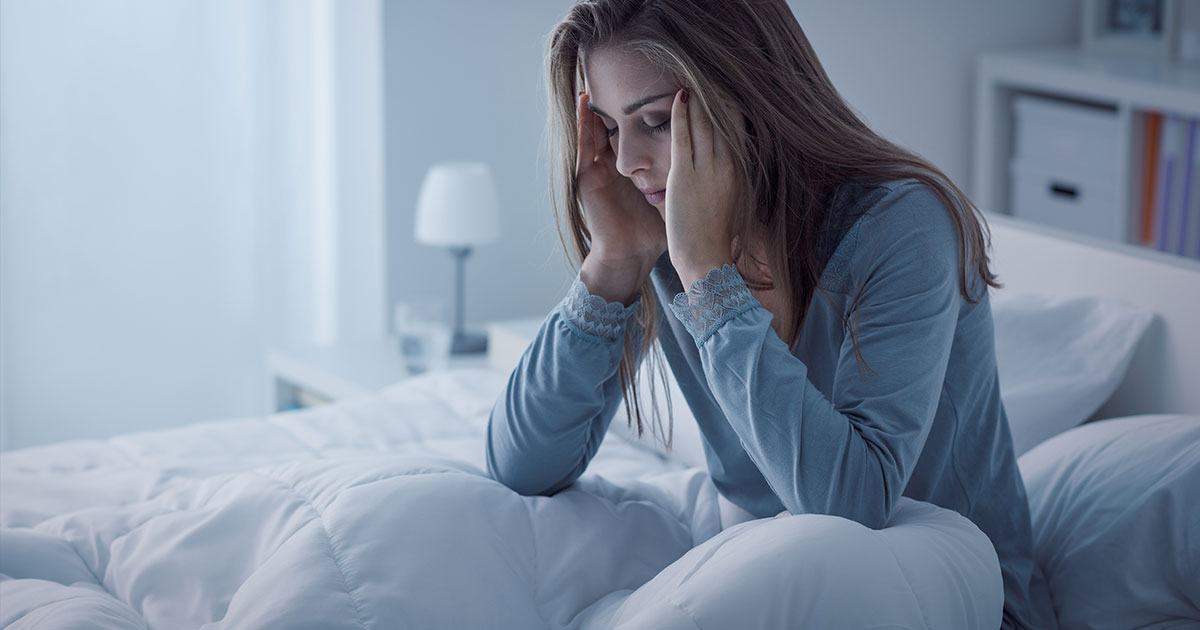Can Sleep Apnea Cause Anxiety?
Posted On 4/11/2023 12:00:00 AM by Dr. Bruce Kanehl

Sleep apnea can do more than just cause issues with your body; it can also have a severe impact on your mental health. Anxiety disorders have been found to be more common among people with sleep apnea, especially those who experience frequent awakenings due to the condition. But can treating sleep apnea help with treating anxiety?
What is Sleep Apnea?
Sleep apnea is a serious sleep disorder that occurs when a person's breathing is interrupted during sleep. It can cause an array of health problems, including daytime fatigue and difficulty concentrating. People who suffer from sleep apnea may experience loud snoring, frequent awakenings throughout the night, and a feeling of not getting enough restful sleep.
Moreover, sleep apnea is not only associated with physical health issues; it also poses a serious threat to mental well-being. Studies have revealed that individuals suffering from moderate to severe sleep apnea have a higher likelihood of developing anxiety disorders.
What is Anxiety?
Anxiety is defined as a feeling of unease or apprehension often caused by an unpredictable situation or event. It is a normal response to stress and can range from mild to extreme levels of distress. It can also manifest itself in physical symptoms such as increased heart rate, sweating, trembling, and difficulty breathing.
Mentally, anxiety can cause feelings of worry, fear, dread, helplessness, and panic. In severe cases, it can even lead to avoidance behaviors which further exacerbate the problem. Although anxiety is a common emotion that everyone experiences at some point in their lives, when it becomes excessive and persistent, it is considered an anxiety disorder that requires professional help for resolution.
Symptoms of Sleep Apnea & Anxiety
It can be difficult to distinguish between the symptoms of sleep apnea and the symptoms of anxiety because of how often they overlap. However, you can determine the root cause of the issue by seeking professional help from a sleep apnea specialist. Here are examples of symptoms to be mindful of that occur in both sleep apnea and anxiety:
- Poor quality of sleep
- Excessive daytime fatigue
- Poor concentration and focus
- Difficulty falling asleep or staying asleep
- Irritability
- Depression
- Waking up often during the night
Can Treating Sleep Apnea Reduce Anxiety?
Yes, treating sleep apnea can help reduce anxiety. When someone has untreated sleep apnea, they are not getting enough restorative sleep, and their brain can become over-stimulated due to chronic fatigue. This can lead to symptoms such as feeling stressed or anxious during the day due to lack of quality sleep. It is possible that by getting better sleep, a person can be better suited to mentally take on the day.
If you are experiencing any of the symptoms of sleep apnea, it’s important to consult with a sleep apnea specialist as soon as you can. Leaving sleep apnea untreated can lead to further health risks and complications. To schedule an initial sleep apnea consultation, contact Kanehl Dental today.
Bruce A. Kanehl, D.D.S.
7933 Baymeadows Way #5
Jacksonville, FL 32256
(904) 731-2162
To learn more about how we can make you smile, request a consultation today.
Dr. Kanehl is one of a select few in the Jacksonville area to be a member of the American Academy of Dental Sleep Medicine and to treat sleep apnea with oral appliance therapy.




